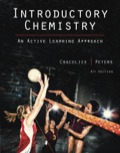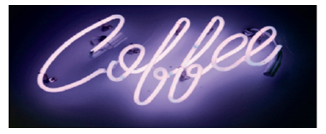
EBK INTRODUCTORY CHEMISTRY: AN ACTIVE L
6th Edition
ISBN: 8220100547508
Author: CRACOLICE
Publisher: Cengage Learning US
expand_more
expand_more
format_list_bulleted
Textbook Question
Chapter 12, Problem 3E
Identify by symbol two positively charged monatomic ions that are isoelectronic with argon.

Argon emits a violet colour when in an activated gas discharge tube.
Expert Solution & Answer
Want to see the full answer?
Check out a sample textbook solution
Students have asked these similar questions
Select the best pair of answer below justifying the reason for your choice.
Provide the molecular formulas for the following compounds
Aluminum bromide
Gallium phosphide
Calcium chloride
What is the chemical formula of diphosphorus pentabromide
Chapter 12 Solutions
EBK INTRODUCTORY CHEMISTRY: AN ACTIVE L
Ch. 12 - Write the electronic configuration for the ions of...Ch. 12 - A monoatomic ion with a charge of 1 has an...Ch. 12 - Identify by symbol two positively charged...Ch. 12 - Considering only ions with charges of 1+,2+,1, and...Ch. 12 - Write the symbols of two ions that are...Ch. 12 - Considering only ions with charges of 1+,2+,1, and...Ch. 12 - Prob. 7ECh. 12 - Prob. 8ECh. 12 - When potassium and chlorine react and form an...Ch. 12 - Fill in the blanks with the smallest integers...
Ch. 12 - Prob. 11ECh. 12 - Prob. 12ECh. 12 - Prob. 13ECh. 12 - Prob. 14ECh. 12 - Prob. 15ECh. 12 - Prob. 16ECh. 12 - Prob. 17ECh. 12 - Prob. 18ECh. 12 - Prob. 19ECh. 12 - Prob. 20ECh. 12 - Prob. 21ECh. 12 - Consider the following bonds: GeSe, BrSe, BrGe....Ch. 12 - Prob. 23ECh. 12 - Consider the following bonds: TeSe, OTe, OSe....Ch. 12 - Prob. 25ECh. 12 - Prob. 26ECh. 12 - Prob. 27ECh. 12 - Prob. 28ECh. 12 - Prob. 29ECh. 12 - What is the maximum number of atoms to which a...Ch. 12 - Prob. 31ECh. 12 - Prob. 32ECh. 12 - Prob. 33ECh. 12 - Prob. 34ECh. 12 - Prob. 35ECh. 12 - Prob. 36ECh. 12 - Prob. 37ECh. 12 - Prob. 38ECh. 12 - Prob. 39ECh. 12 - Prob. 40ECh. 12 - Prob. 41ECh. 12 - Prob. 42ECh. 12 - Prob. 43ECh. 12 - Prob. 44ECh. 12 - Prob. 45ECh. 12 - Prob. 46ECh. 12 - Prob. 47ECh. 12 - Prob. 48ECh. 12 - Which orbitals of each atom overlap in forming a...Ch. 12 - Prob. 50ECh. 12 - Prob. 51ECh. 12 - A monatomic ion with a 2 charge has the electron...Ch. 12 - Prob. 53ECh. 12 - Prob. 54ECh. 12 - Prob. 55ECh. 12 - Prob. 56ECh. 12 - Prob. 57ECh. 12 - Prob. 58ECh. 12 - Prob. 59ECh. 12 - Prob. 60ECh. 12 - Prob. 61ECh. 12 - Which ions among the following are isoelectronic...Ch. 12 - Prob. 12.2TCCh. 12 - Prob. 12.3TCCh. 12 - Prob. 12.4TCCh. 12 - Prob. 12.5TCCh. 12 - Prob. 1CLECh. 12 - Prob. 2CLECh. 12 - Prob. 3CLECh. 12 - Prob. 4CLECh. 12 - Prob. 5CLECh. 12 - Prob. 6CLECh. 12 - Write the electron configurations for the oxide...Ch. 12 - Arrange the following bonds in order of decreasing...
Knowledge Booster
Learn more about
Need a deep-dive on the concept behind this application? Look no further. Learn more about this topic, chemistry and related others by exploring similar questions and additional content below.Similar questions
- The Iron Triad is a historical name for the group of elements Fe, Co, and Ni. It was used to refer to these elements in the same period that share similar chemical and physical characteristics. All three elements in the Iron Triad can form +2 and +3 ions. For each element: a) Write the neutral, +2 oxidation state, and +3 oxidation state electron configuration using the condensed noble gas notation. Indicate which ions in the group are isoelectronic. b) Indicate the number of unpaired electrons in the +2 and +3 oxidation state and whether each ion is diamagnetic or paramagnetic.arrow_forwardUsing the terms atomic radius, and nuclear charge, explain why the elements on the right side of the periodic table typically have greater electronegativity value than those on the left side.arrow_forwardGive detailed Solution with explanation needed..don't give Handwritten answerarrow_forward
- In what physical state does chlorine exist at −65°C?arrow_forwardWhen potassium permanganate is formed, how does the electron configuration of potassium change, going from the neutral potassium atom to the potassium ion?arrow_forwardExplain the fact that hydrated salts of beryllium are acidic whereas hydrated salts of magnesium are neutral. please explainarrow_forward
- Draw the structure of the tetramethylammonium ion. Why does this species have a permanent positive charge?arrow_forwardExplain the term "electron sea" in terms of metallic bonding and use it explain one of the properties (such as malleability or conductivity) of a metal such as copper.arrow_forwardIf X is in the period 5, the ion formed has the same electron configuration as the noble gasarrow_forward
arrow_back_ios
SEE MORE QUESTIONS
arrow_forward_ios
Recommended textbooks for you
 Introductory Chemistry: An Active Learning Approa...ChemistryISBN:9781305079250Author:Mark S. Cracolice, Ed PetersPublisher:Cengage Learning
Introductory Chemistry: An Active Learning Approa...ChemistryISBN:9781305079250Author:Mark S. Cracolice, Ed PetersPublisher:Cengage Learning Chemistry & Chemical ReactivityChemistryISBN:9781337399074Author:John C. Kotz, Paul M. Treichel, John Townsend, David TreichelPublisher:Cengage Learning
Chemistry & Chemical ReactivityChemistryISBN:9781337399074Author:John C. Kotz, Paul M. Treichel, John Townsend, David TreichelPublisher:Cengage Learning Chemistry & Chemical ReactivityChemistryISBN:9781133949640Author:John C. Kotz, Paul M. Treichel, John Townsend, David TreichelPublisher:Cengage Learning
Chemistry & Chemical ReactivityChemistryISBN:9781133949640Author:John C. Kotz, Paul M. Treichel, John Townsend, David TreichelPublisher:Cengage Learning ChemistryChemistryISBN:9781305957404Author:Steven S. Zumdahl, Susan A. Zumdahl, Donald J. DeCostePublisher:Cengage Learning
ChemistryChemistryISBN:9781305957404Author:Steven S. Zumdahl, Susan A. Zumdahl, Donald J. DeCostePublisher:Cengage Learning Chemistry: An Atoms First ApproachChemistryISBN:9781305079243Author:Steven S. Zumdahl, Susan A. ZumdahlPublisher:Cengage Learning
Chemistry: An Atoms First ApproachChemistryISBN:9781305079243Author:Steven S. Zumdahl, Susan A. ZumdahlPublisher:Cengage Learning

Introductory Chemistry: An Active Learning Approa...
Chemistry
ISBN:9781305079250
Author:Mark S. Cracolice, Ed Peters
Publisher:Cengage Learning

Chemistry & Chemical Reactivity
Chemistry
ISBN:9781337399074
Author:John C. Kotz, Paul M. Treichel, John Townsend, David Treichel
Publisher:Cengage Learning

Chemistry & Chemical Reactivity
Chemistry
ISBN:9781133949640
Author:John C. Kotz, Paul M. Treichel, John Townsend, David Treichel
Publisher:Cengage Learning


Chemistry
Chemistry
ISBN:9781305957404
Author:Steven S. Zumdahl, Susan A. Zumdahl, Donald J. DeCoste
Publisher:Cengage Learning

Chemistry: An Atoms First Approach
Chemistry
ISBN:9781305079243
Author:Steven S. Zumdahl, Susan A. Zumdahl
Publisher:Cengage Learning
Periodic Properties of Elements | Chemistry | IIT-JEE | NEET | CBSE | Misostudy; Author: Misostudy;https://www.youtube.com/watch?v=L26rRWz4_AI;License: Standard YouTube License, CC-BY
Periodic Trends: Electronegativity, Ionization Energy, Atomic Radius - TUTOR HOTLINE; Author: Melissa Maribel;https://www.youtube.com/watch?v=0h8q1GIQ-H4;License: Standard YouTube License, CC-BY